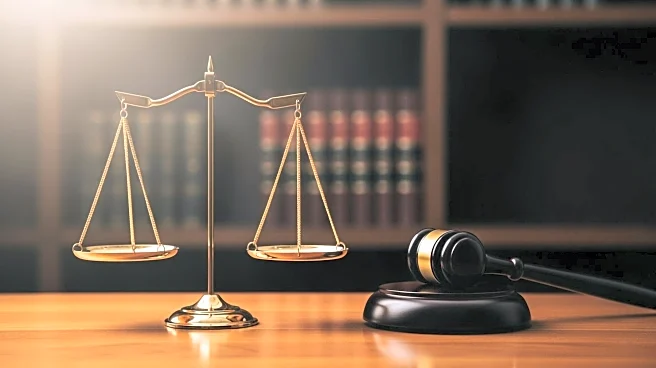What's Happening?
Sex-abuse survivors and advocates are criticizing NYC Council Speaker Adrienne Adams for blocking a 'look-back' bill that would enable more victims to sue, including those against Jeffrey Epstein's estate. The bill, introduced in May, aims to provide
victims a year starting in March 2026 to file lawsuits against the city and institutions involved in facilitating abuse, regardless of when the incidents occurred. The current statute of limitations for such suits is nine years after the reported incident. The bill has faced delays in the council, with accusations of political motivations behind its stalling. The Mayor’s Office of Management and Budget estimates the financial impact of the bill could reach up to $1 billion.
Why It's Important?
The bill's blockage has significant implications for survivors seeking justice and accountability. If passed, it would allow victims of sexual abuse, including those linked to Jeffrey Epstein, to pursue legal action against his estate and other entities. The delay in passing the bill could result in lost opportunities for hundreds of survivors to seek redress. The financial implications for the city are substantial, with potential liabilities reaching up to $1 billion. The controversy surrounding the bill highlights the complex interplay between politics and justice for abuse survivors, raising concerns about the prioritization of political interests over victim rights.
What's Next?
The bill is currently in negotiation with the mayoral administration and stakeholders, a critical step before consideration for passage. Advocates continue to push for the bill's advancement, emphasizing the urgency for survivors to have their legal rights protected. The council's actions in the coming months will be closely watched by survivors and their representatives, who are eager for the bill to be brought to a vote. The outcome will determine whether victims can pursue justice or face further delays in their legal battles.
Beyond the Headlines
The stalling of the bill raises ethical questions about the influence of political dynamics on legislative processes, particularly in cases involving vulnerable populations. The situation underscores the need for transparency and accountability in legislative decision-making, especially when it affects the rights of abuse survivors. The broader cultural implications include the ongoing struggle for victims to have their voices heard and their experiences validated within legal frameworks.















